As we’re heading into the end of June, graduation season seems to dwindle down. Still, there are some students who need to defend their theses to graduate. Most work on their theses solo, but about 14.5% of PhD students, for example, have thesis partners.
This student quickly saw the ugly side of a shared thesis when his partner seriously lagged behind during the entire process. Tired of having to pull her through constantly, the guy finally snapped and asked their supervisor if she could be removed from the project. Yet after the fact, he started wondering: maybe he was being too harsh?
A student ratted out his thesis partner to their supervisor after having done most of the work all year

Image credits: freepik (not the actual image)
Yet later, he started wondering if it was too harsh, since his partner was a single mom
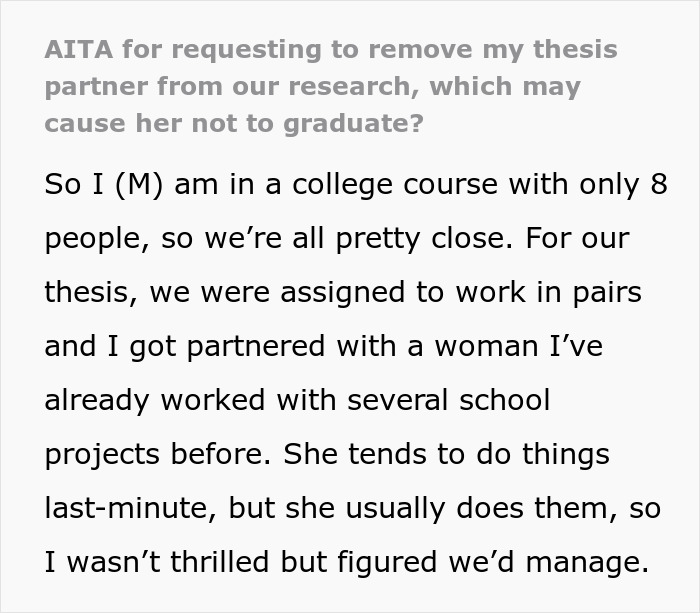

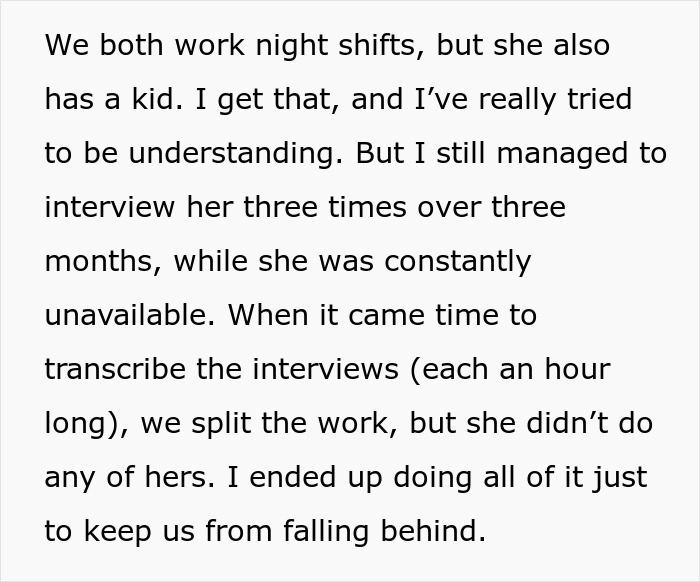
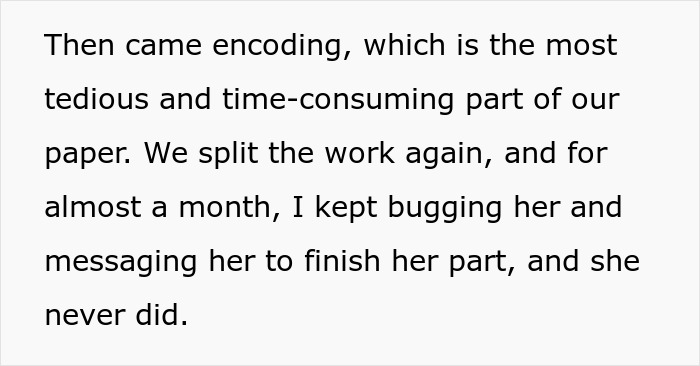

Image credits: cottonbro studio (not the actual image)
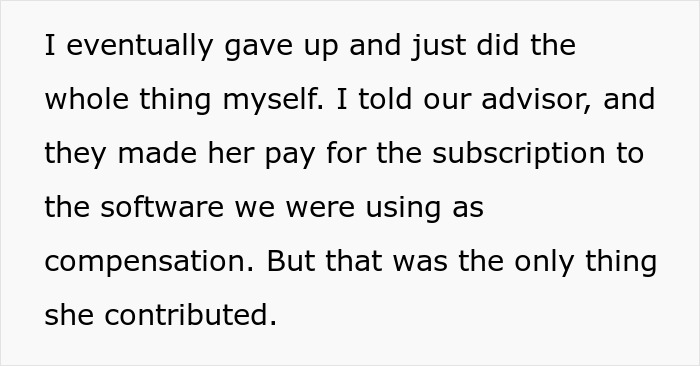
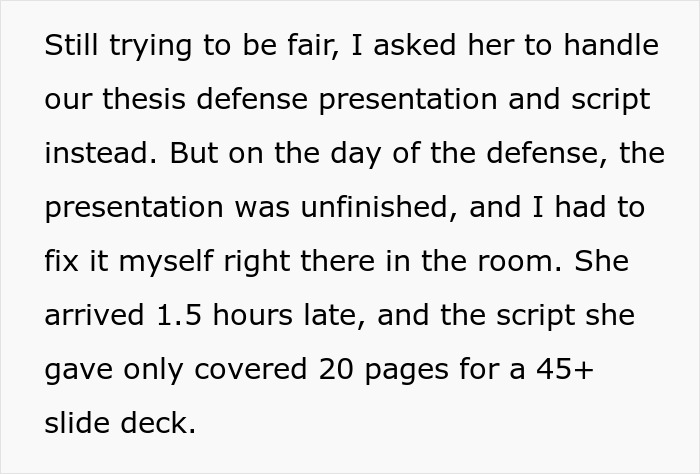

Image credits: Unai82 (not the actual image)
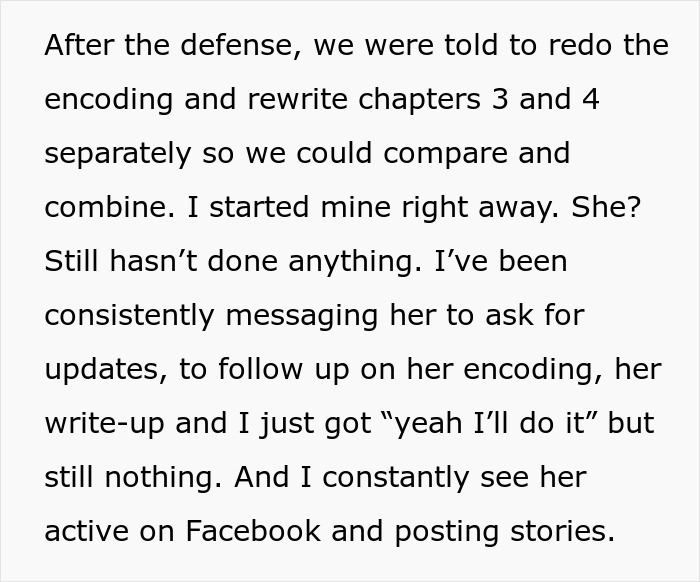
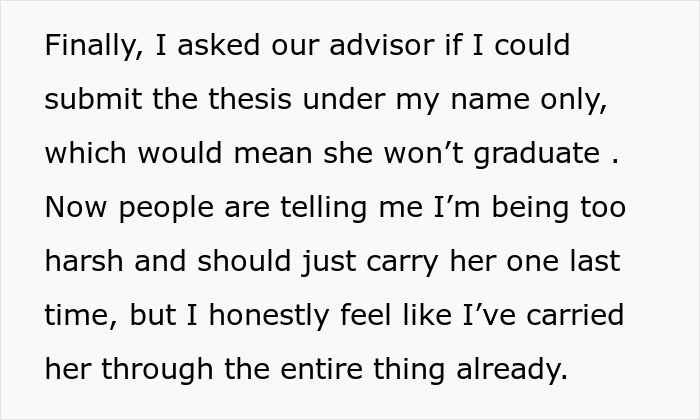

Image credits: FluidWishbone6237
Most students hate group projects and have solid reasons to do so
People’s hatred for doing group projects for school is well-documented online. Memes and stories about terrible group project partners abound on the internet and in real life. But when it’s your graduate degree at stake, it’s hardly a laughing matter.
Many students don’t hide their dislike of group projects, and this story illustrates perfectly why that is. In a 2023 study, 61.7% of the student respondents claimed they preferred to work independently.
A little over a third (37.4%) were okay with combining independent and group work, and only 0.9% said they prefer “collaborative assignments.” The study also revealed that the majority of students prefer to work in smaller teams when possible, the most popular choices being a team of three (40%) or two (36.5%).
According to math teacher and EdTech expert Alice Keeler, some of the most common reasons why students hate working in groups are:
- Some have to do more work than others
- They just don’t get along well
- Group work feels inefficient
- Students feel they’re not graded fairly
- There’s no clear distribution of roles and responsibilities
Image credits: wayhomestudio (not the actual image)
Higher education institutions fail to teach students how to effectively work in groups
That last point, according to some experts and educators, is the core of the problem when it comes to group projects. Professor of Practice at the Kaneb Center for Teaching Excellence at the University of Notre Dame, James M. Lang, PhD., claims that the lack of intervention from teachers and advisors can be considered “pedagogical malpractice”.
“If you are assigning and grading group projects and: (a) not giving your students any explicit guidance or resources for how to work together effectively, and (b) not checking in and intervening when groups show signs of dysfunction, then you are engaging in [it],” he writes for The Chronicle of Higher Education.
Experts who are pro-group projects say that it teaches students how to work and succeed in teams, better their communication skills, and be less biased through engaging in discussions and challenging assumptions.
Yet we don’t actually teach students all these skills, expecting them to learn through working on group projects. As educator John Warner writes for Inside Higher Ed, “You must treat the group work as an important part of the curriculum itself.”

Image credits: standret (not the actual image)
Supervisors should instruct students how to communicate during group projects and check in routinely
Luckily, Warner has some tips on how to help students approach working in groups so that they don’t become the most dreaded part of a curriculum.
- The process is more important than the end product.
- Educators need to design projects that can only be done by a group. If the assignment could be done by an individual, it’s unsuitable for a team project.
- Students should be able to pick their teams.
- Educators need to instruct the students on how to work in teams effectively. This includes ethics, team building, collaborative writing processes, scheduling, effective communication, and more.
- Supervisors need to check in and assess progress.
- Students should have some say in the calendar of deadlines.
Image credits: EyeEm (not the actual image)
Most commenters felt no sympathy for the partner: “She cheated emergencies you had to handle”

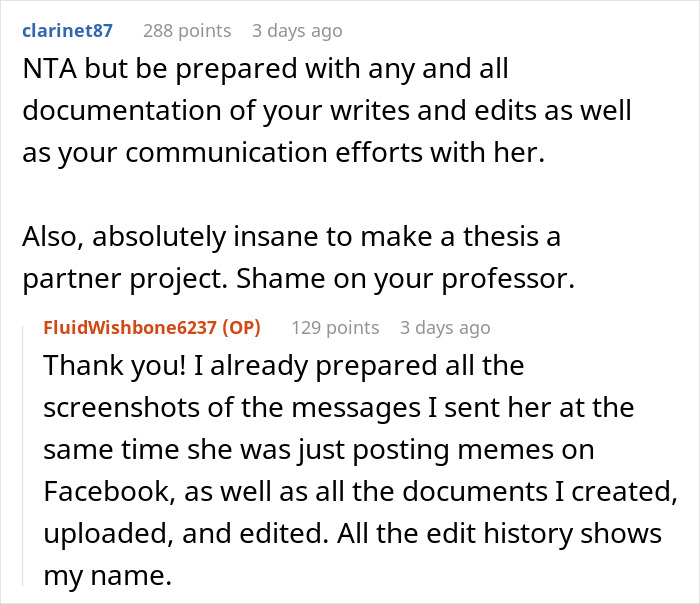
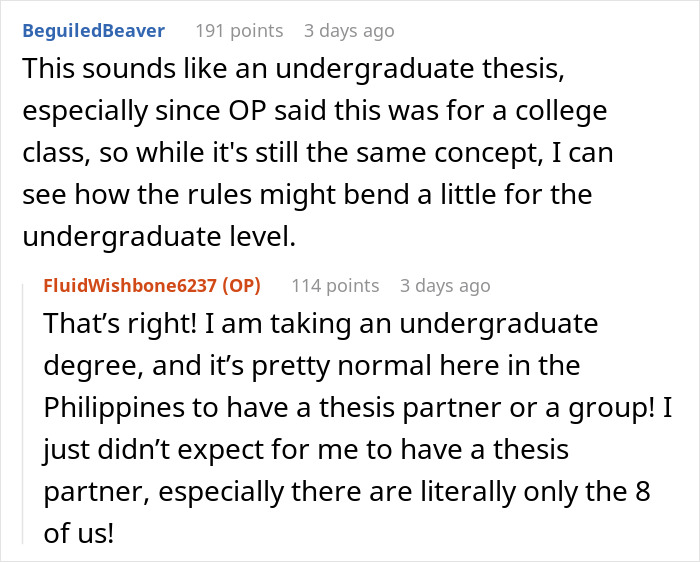
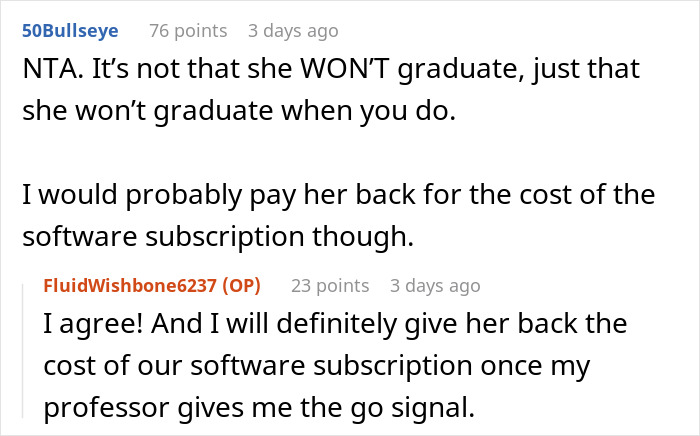

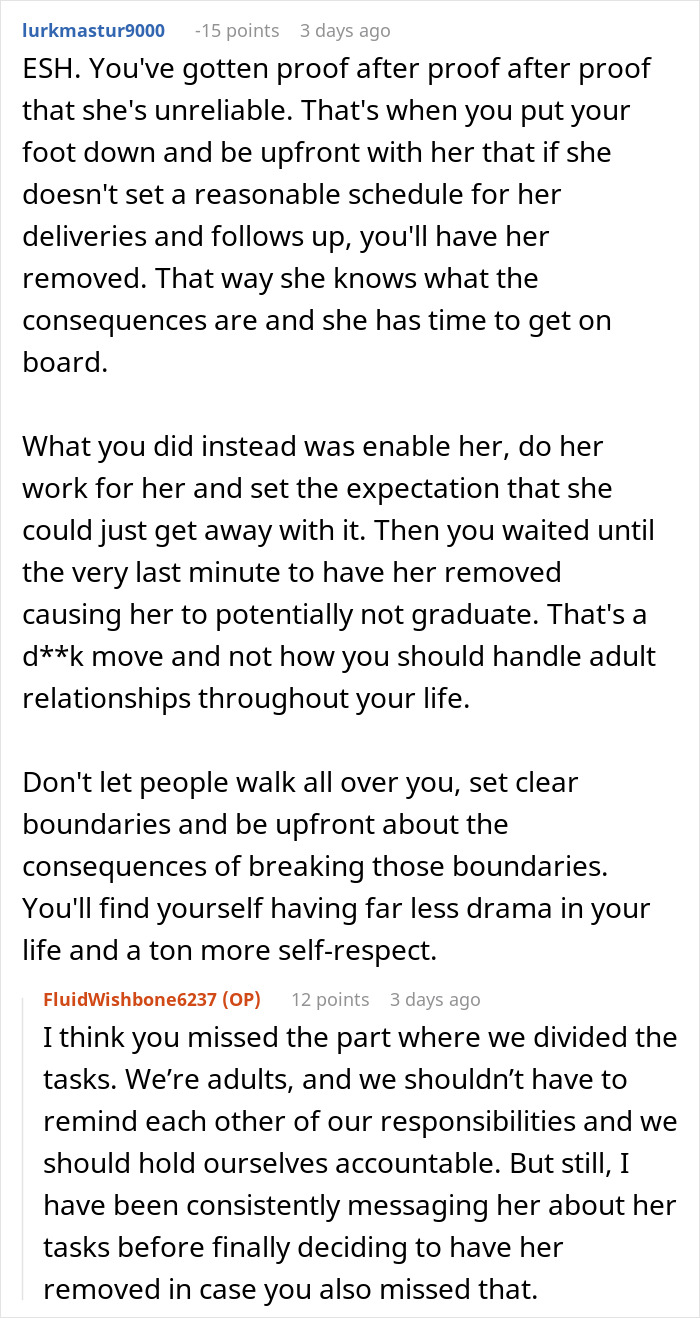
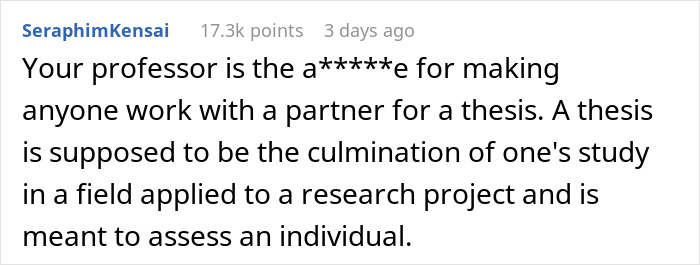
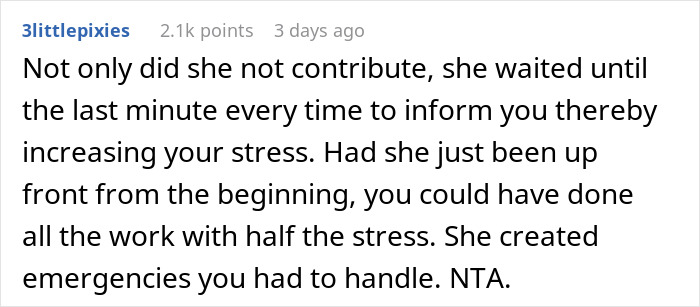

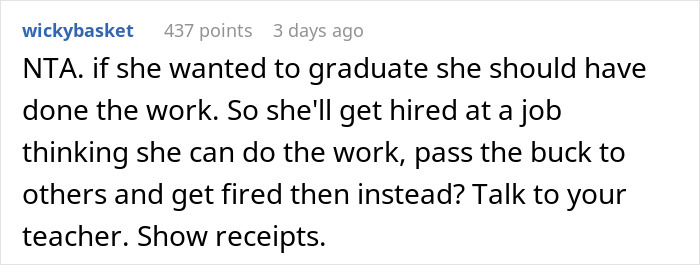

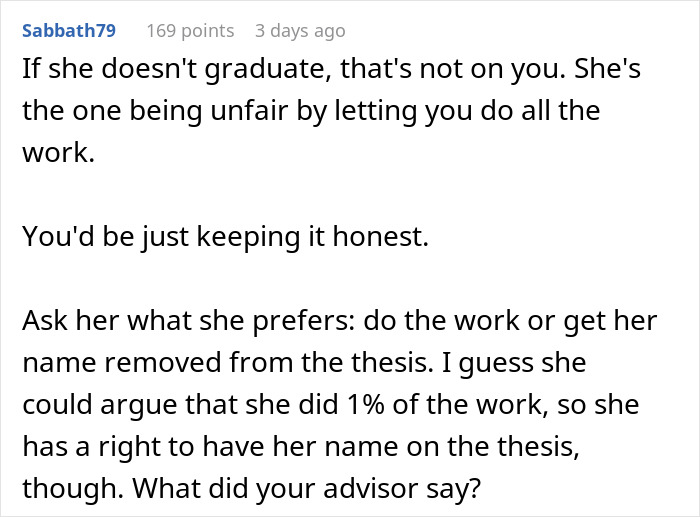

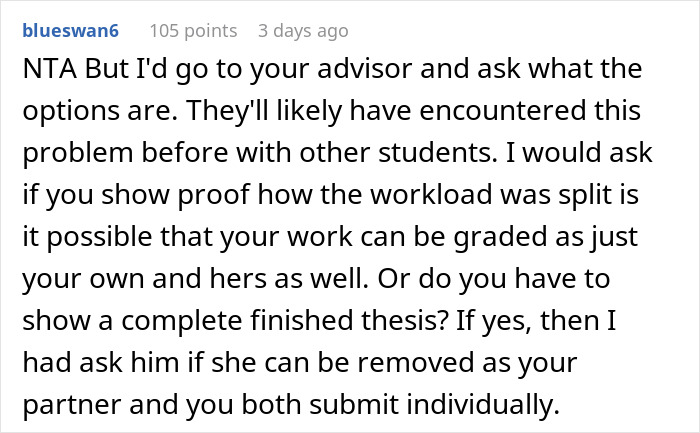
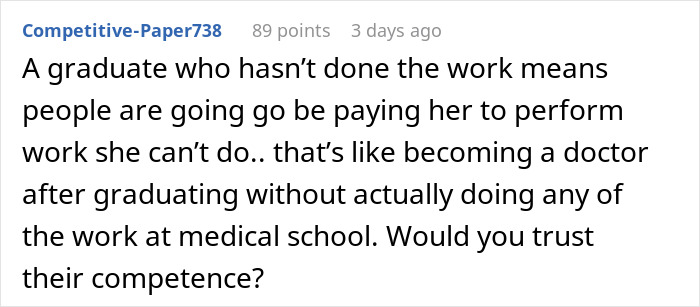

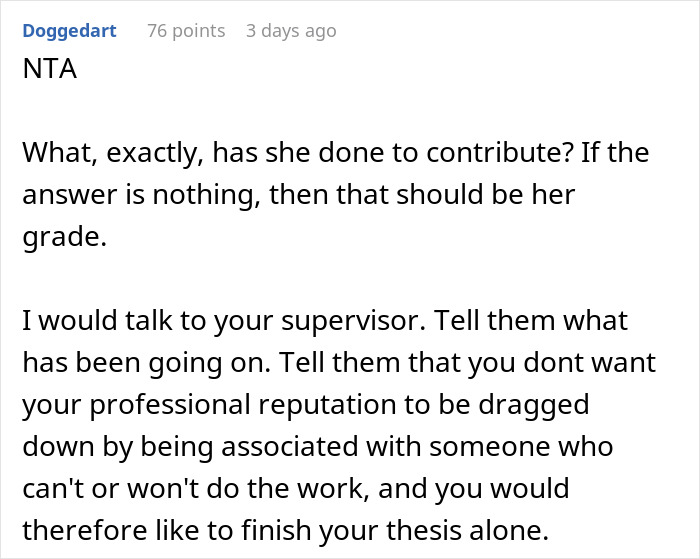







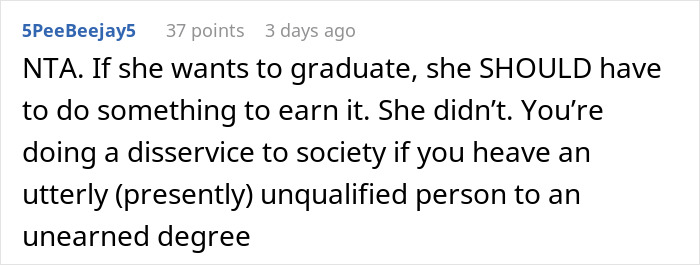




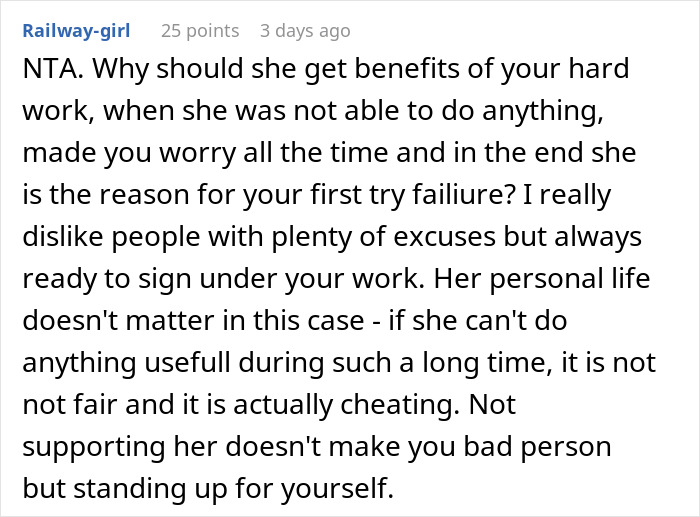
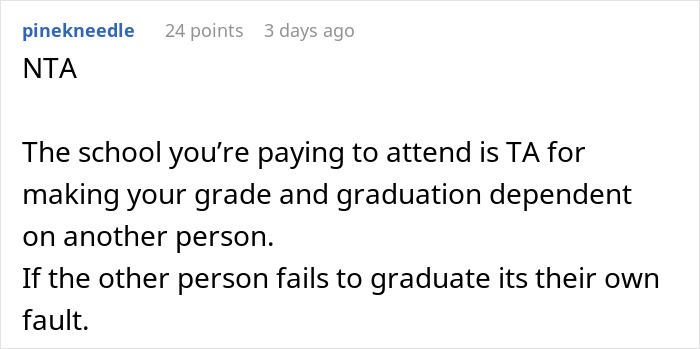



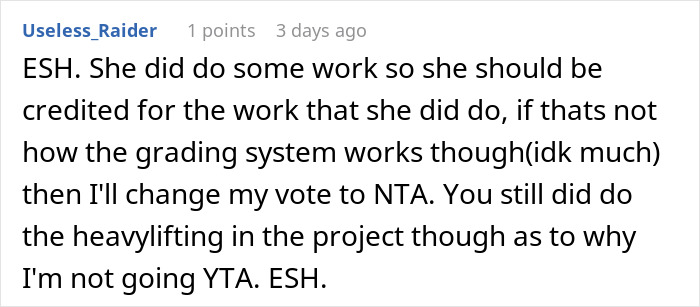
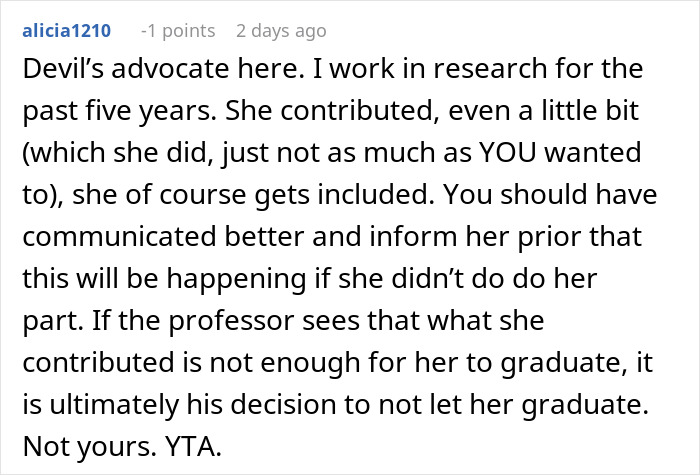
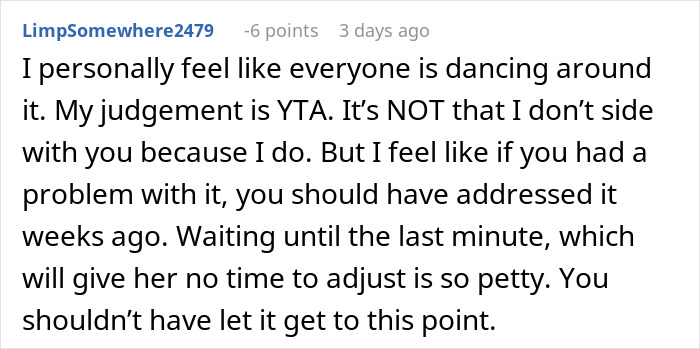
from Bored Panda https://ift.tt/lV5aLIA
via IFTTT source site : boredpanda

